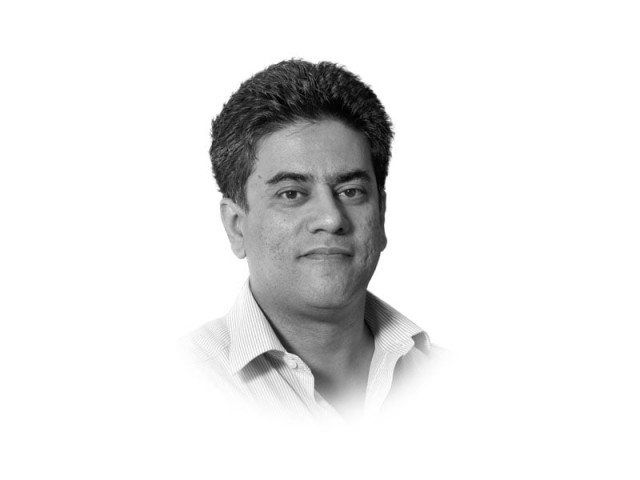Lessons from the heat wave
There has been little effort on the part of Sindh government to examine the causes of the deaths in the first place

The writer is Editor of The Express Tribune
We are still not clear why the government failed to act to prevent the tragedy and why no one ascribed blame on those agencies and departments that did not deliver. For example, after the death toll reached hundreds, the Sindh Rangers established relief camps in different locations across the city. The question is where was the rest of the government machinery? It was the job of the provincial health department to take the lead.
While the heat has been unbearable, many argue that the deaths were unavoidable because most of the people who died were those who lived on the streets. This includes those over 200 unnamed persons that were buried by Edhi sahib soon after the first round of deaths.
The availability of drinking water to those who needed it has also been a subject of much debate. Many insist that this was not a factor in the tragedy and that this point is being exaggerated to cover up the failings of the government.
Three factors played a part. The first was the record temperatures, the second was that being the holy month of Ramazan dehydration set in quicker than usual in people who were fasting. And the third was the massive power cuts as well as the shortage of water supply to many localities during this time. This deprived many of those affected of any immediate relief.
But there is more. There was general ignorance in terms of awareness of symptoms. People could have avoided heat strokes if they recognized the symptoms or took precautions. For example, the people of the Quaid’s city rarely wear caps carry umbrellas to avoid direct sunlight. They think nothing of moving around in record temperatures and rarely do they make an effort to avoid dehydration. There could have been a massive public campaign to get people to take precautions. This was never done and ironically the government advertising in this time remained fixed on highlighting their achievements instead.
Most hospitals were incapable of dealing with the onset of heat stroke patients and it took volunteers to ensure that many of the public hospitals got enough bedsheets, towels and water bottles. People like politician Gibran Nasir and many others used social media to raise awareness and provide support.
Coming back to lessons learnt, one can look at the lack of trees in the city as a major reason for rising temperatures. The greedy city administration, which is led by the provincial government as well, has cut down thousands of trees to cater to outdoor advertisements. So merciless has been the crusade to cut down trees over the past five years that in most parts of the city there are more billboards than there are trees. The cantonment areas are as bad as those under the city administration.
One recalls the thousands of trees planted by Mayors Naimatullah Khan and Mustafa Kamal and how they are no more. Given that PTI’s Dr Arif Alvi has also started a campaign to plant trees in the city once again, one must first come up with some sort of legislation that discourages cutting down trees to make way for billboards and other such enterprises that the unelected city officials come up with to raise money for them themselves.
Finally to the blame part. In the past, spokespersons for the provincial government have shrugged aside criticism of its performance on grounds that this was a conspiracy against an elected government and against democracy itself. This has happened time and again – take for example the crisis in Thar, where the government insisted that all was well at a time when babies were dying of malnutrition, we can only hope for some sense of shame and responsibility to come into those who call the shots in Sindh. Or we can pray that these people do not get elected in the coming polls, whichever can happen sooner.
Published in The Express Tribune, July 13th, 2015.
Like Opinion & Editorial on Facebook, follow @ETOpEd on Twitter to receive all updates on all our daily pieces.
















COMMENTS
Comments are moderated and generally will be posted if they are on-topic and not abusive.
For more information, please see our Comments FAQ